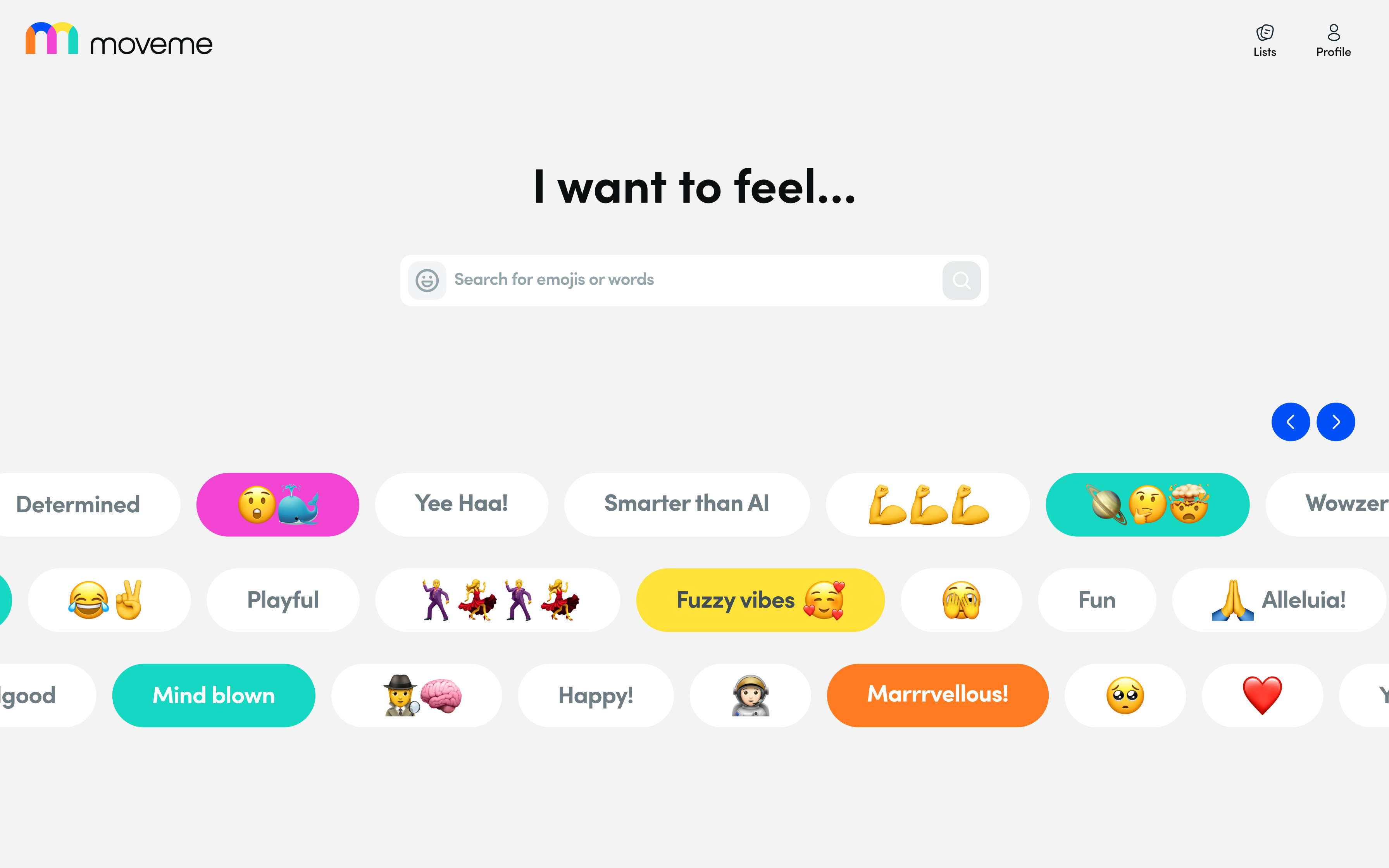Moveme.tv Launches Free AI-Powered Platform for Content Discovery
Startup says its AI system can match 676,906 movies to any desired emotional journey, enabling users to discover content that’s relevant to their emotional state

LONDON, U.K.—With researchers reporting increased frustration by streamers trying to find content in an increasingly fragmented media landscape, London tech start-up, www.moveme.tv is trying to solve that problem with the launch of a free platform that uses AI and neuroscience to offer a unique emotion-led approach to discovering content.
The platform is designed to help users to discover the perfect movie to watch by having them describe their desired emotional state using emotive words - or emojis.
This approach, the start-up said, will speed up the search process and bring people closer to content they’ll love in under two minutes.
“Watching movies is an emotional experience,” explained founder and CEO of Moveme.tv, Ben Polkinghorne. “Discovering them should be too. Existing streaming platforms are infuriating their customers with arguably ancient, flawed and unsophisticated recommendations that often fail to connect people to the content they crave.”
With the global competition for subscribers, the amount of available video content has jumped 18% in the last three years, making content discovery increasingly difficult, the start-up explained. In December 2022, an annual global study of 6,000 streaming consumers by Accenture found a staggering 72% get frustrated trying to find something to watch, up 9% year on year. More than one-quarter (26%) say it can take them more than 10 minutes to choose something, up 53% year on year. And more than one-third (35%) unsubscribed from at least one of the top five streaming video-on-demand services in the last 12 months.
Existing streaming platforms typically rely on two main recommendation systems - content based and collaborative filtering. Both date back to the 1990s.
What they fail to take into account is that emotions influence nearly every decision people make, the company believes.
Get the TV Tech Newsletter
The professional video industry's #1 source for news, trends and product and tech information. Sign up below.
Funded by a grant from Innovate UK, the start-up began examining the role of emotions with research by leading neuroscientists Dr. Kathrin Kadosh and Dr. Philip Dean at the University of Surrey. Based on that research, the company was then able to develop a pioneering emotion-led algorithm that has now analyzed 676,906 films.
“By measuring brain activity as people watch movies, we begin to understand the neural signatures of emotional processing,” Dr. Dean explained. “This raw emotional data can then feed an algorithm to automatically predict how a movie will make someone feel.”
Today, moveme.tv says its proprietary AI system can accurately match film content with a specific emotional journey, enabling users to rapidly discover the content that’s relevant for them, right now.
To achieve that goal, the platform has users select or input their desired mood using any emotive words or emojis, such as "Warm fuzzies", "🤘😎🤘" or “Awe 🪐”. Recommendations can then be further filtered based on ratings, release date, what can be watched for free, or what can be watched with any existing paid streaming subscription.
Moveme.tv launches today, June 1, in 118 countries, with a catalog spanning all 516 streaming services. It is free to users and has plans to engage with content platforms to license its patent-pending technology while continuing to develop its public service.
“By tapping into our emotions, stimulating our senses, and creating a deep emotional bond with the characters and storylines, movies can significantly impact our moods,” said Moveme.tv founder and CEO, Ben Polkinghorne, said, So, by simplifying how we find movies, we’re also effortlessly helping people to change their mood.”
More information is available at www.moveme.tv.
George Winslow is the senior content producer for TV Tech. He has written about the television, media and technology industries for nearly 30 years for such publications as Broadcasting & Cable, Multichannel News and TV Tech. Over the years, he has edited a number of magazines, including Multichannel News International and World Screen, and moderated panels at such major industry events as NAB and MIP TV. He has published two books and dozens of encyclopedia articles on such subjects as the media, New York City history and economics.

